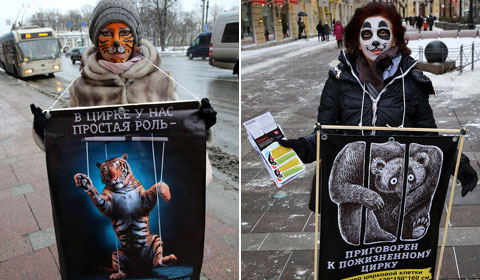Pollution fears dampen fireworks sale
Updated: 2014-02-06 23:41
By CAO YIN in Beijing and WU YIYAO in Shanghai (China Daily)
|
|||||||||||
Fireworks sales fell sharply in Beijing during Spring Festival, with more people shunning them because of air pollution concerns.
Residents in the capital bought 195,000 boxes of fireworks from Lunar New Year's Eve on Jan 30 to Feb 4, a decline of 38 percent from the same period last year, according to figures from the municipal public security bureau.
Fireworks were also set off for shorter periods during the holiday, the bureau said, adding there had been no reports of deaths or eye injuries.
Over the six days, 108 people were injured setting off fireworks in the city, a decline of 34.5 percent on last year, the bureau added.
Lunar New Year is traditionally celebrated with fireworks to add to the festive atmosphere and to fend off evil spirits and bad luck.
However, before Spring Festival this year, government officials and environmentalists called on residents via social media to cut spending on fireworks and reduce their use, because of concerns about air pollution.
Zhao Huijin, 26, who lives in Chaoyang district, was among those who chose not to set off fireworks. She told China Daily on Thursday she thought that fewer people in her community set off fireworks during the holiday.
"This was because of increasing awareness about environmental protection. Everyone in the city has the responsibility to fight against sooty air," she said.
Li Shuang, 25, who lives in Haidian district, agreed with Zhao. He said he slept well on Lunar New Year's Eve, which had not been possible in recent years because of noise from fireworks.
"It was so noisy in the past that I had to wear earplugs, as many people set off fireworks in my community day and night," he said. "But this year there was not as much noise, and there were fewer firework sellers on the streets."
The capital's fireworks authority said there were 1,178 fireworks stores in Beijing this year, a fall of 12 percent on last year.
A saleswoman in Wenxueguan Road in Chaoyang district said Spring Festival business had been sluggish this year.
"Few people came to buy," said the woman, who declined to be identified, adding that she had to offer discounts.
In addition to Beijing, residents in Shanghai received text messages from the local authorities suggesting they reduce fireworks spending during the holiday because of environmental and safety concerns.
"Air quality has been quite good in recent days without intensive fireworks in the downtown area," said 56-year-old Shanghai resident Li Yu.
The city's sanitation authority said workers cleared about 800 metric tons of waste from fireworks on Tuesday, about 20 percent less than last year.
In addition, Shanghai can expect to see sulfur-free fireworks next year, as manufactures have developed products with low emissions.
More Shanghai residents may choose to buy the new type of fireworks after serious smog hit the city recently, said Wu Guo'an, spokesman for the city's fireworks distribution association.
Contact the writers at caoyin@chinadaily.com.cn and wuyiyao@chinadaily.com.cn
Related Stories
Beijing sees 38% slump in fireworks sales 2014-02-05 16:56
Fireworks rehearsal for Sochi 2014-02-02 15:29
'Green' fireworks fail to curb pollution 2014-02-01 08:32
Thrifty fireworks lessen China's smog pain 2014-01-31 18:42
Today's Top News
Trade frictions with the EU likely to grow
Xi, Putin vow stronger ties
Pollution fears dampen fireworks sale
US warns airlines about 'toothpaste bombs'
Dutch security services bug phones
President Xi leaves for Sochi ceremony
Vatican's child abuse record slammed
Schroeder accuses US of disrespect
Hot Topics
Lunar probe , China growth forecasts, Emission rules get tougher, China seen through 'colored lens', International board,
Editor's Picks

|

|

|

|

|

|





